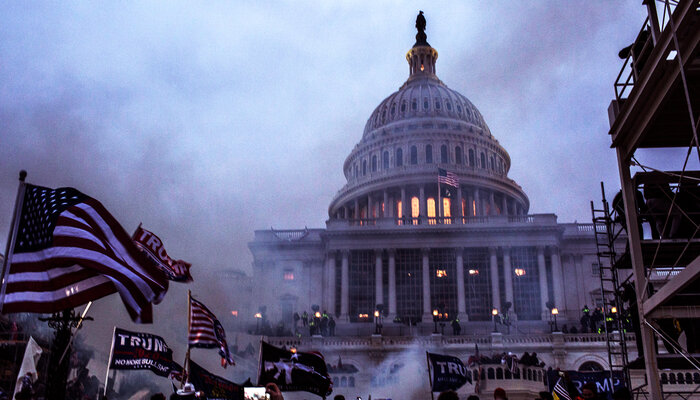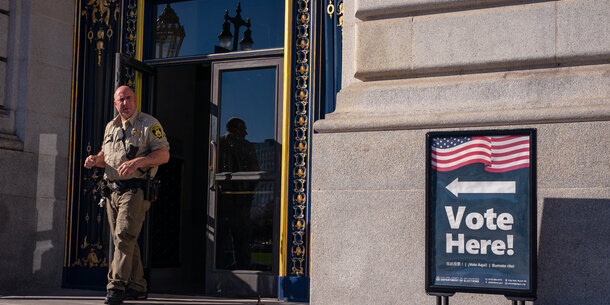On the evening of December 7, 1941, President Franklin D. Roosevelt summoned his secretary and dictated a speech to be delivered to the nation the following day. Roosevelt intoned steadily, puffing on his cigarette and specifying punctuation marks as he spoke. “Yesterday, December seventh, 1941, a date which will live in world history…” When he received the typed draft, the president scratched out “world history” and scribbled “infamy.”
December 7, 1941. November 22, 1963. September 11, 2001. These events scarred our national psyche, and the mere mention of the date is enough to recall the trauma. This Thursday marks the one-year anniversary of another such date: January 6, 2021.
Like these other infamous dates, our understanding of the events of January 6 continues to develop. A year ago, we knew that Donald Trump had spurred the insurrection, with his Big Lie of a stolen election, his summoning of supporters to a “wild” protest, and the demand that his followers march up Pennsylvania Avenue and “fight like hell.” Today we know there was more to it: that Trump and his aides had a scheme, far-fetched as it was, to use chaos and doubt to throw the election to the House of Representatives, where it could be stolen for him. “Just say that the election was corrupt + leave the rest to me and the R. Congressmen,” notes from his call with the acting attorney general recorded.
Also like the other infamous dates, we now recognize January 6 not as an isolated event, but as part of a historical movement. This movement did not start with Trump. And this wider antidemocratic rebellion is far from defeated. To the contrary, it has made staggering progress. In 2021, legislatures across the country considered bills to grant themselves the power to overturn or nullify election results. Some are trying to legislate courts out of the voting process. Many are threatening to punish elections officials who attempt to ensure equal access to the ballot.
History’s searing days often served to rally public emotion, for better or worse. In World War II, soldiers fought to “remember Pearl Harbor.” 9/11 briefly unified the country but was used to justify the invasion of Iraq.
Will January 6 similarly inspire and rally? Congress is finally poised to act to protect American democracy. The Freedom to Vote Act and the John R. Lewis Voting Rights Advancement Act are the most important voting rights bills in over half a century. They would stop the wave of restrictive voting laws, combat racial discrimination, establish strong national standards for elections. They would counter the antidemocratic impulse behind January 6. As the Senate returns this week from recess, they are the first item of business.
What does January 6 mean? What the Senate does — or fails to do — will provide the answer.



